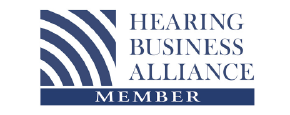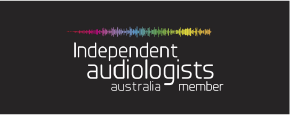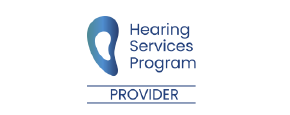Are you looking for a hearing test in Caboolture?
Are you having difficulty communicating? Our expert audiologists at Hearing Help can help improve your hearing clarity. Book your consultation today and reconnect with the sounds and people you love!
Hearing Test in Caboolture Brisbane
Are you looking for a Hearing Test in Caboolture? Our experienced audiologists provide comprehensive hearing tests and personalised treatment plans to address hearing loss and improve overall quality of life. Good hearing health is crucial for well-being, and regular tests detect problems early, enabling timely intervention. Our hearing tests, conducted in a soundproof room, assess hearing abilities and provide an audiogram for diagnosing hearing loss. We utilise state-of-the-art facilities and cutting-edge technology to develop effective treatment plans. By understanding the importance of hearing health and taking proactive steps, individuals can take the first step towards a more fulfilling life, with more to discover about our expert services.
About Hearing Help
As a respected audiology clinic, Hearing Help boasts a team of experienced professionals dedicated to delivering exceptional hearing healthcare services and solutions to individuals in Caboolture, Brisbane. Our expertise spans a wide range of hearing-related services, including comprehensive hearing assessments, hearing aid fittings, and ongoing support to ensure optimal hearing outcomes.

Our commitment to providing exceptional care is reflected in our state-of-the-art facilities and cutting-edge technology. We utilise the latest diagnostic tools and techniques to accurately assess and address hearing concerns, tailoring our approach to meet the unique needs of each individual. Our team takes the time to listen attentively, understand concerns, and develop personalised plans that address specific hearing needs and goals.
Why Choose Hearing Help?
Hearing Help provides hearing services in the surrounding areas of Newport 4020 Brisbane. As an independent Audiology clinic, they offer client-centred care, best practices, and assistance to the whole community, including hearing tests, tinnitus assessments, ear plugs, and hearing aid fittings.
Importance of hearing health and regular hearing tests
Maintaining good hearing health is crucial for overall well-being and quality of life. Regular hearing tests play a vital role in detecting any hearing problems early, allowing for timely intervention and treatment. Untreated hearing loss can lead to feelings of isolation, depression, and anxiety, as well as affect relationships and daily communication. Furthermore, hearing loss has been linked to an increased risk of cognitive decline and dementia. By undergoing regular hearing tests, individuals can identify any hearing issues promptly, enabling them to receive the necessary treatment, such as hearing aids or other interventions, to improve their hearing and prevent further complications.
What is a Hearing Test?
To better understand how hearing health is evaluated, it is helpful to know what a hearing test entails and what types of assessments are used to identify potential hearing problems. A hearing test, also known as an audiologic evaluation, is a comprehensive assessment of an individual’s hearing abilities. It is designed to measure the sensitivity of a person’s hearing and identify any hearing loss or abnormalities in the auditory system.
Conducted by an audiologist or a hearing specialist, a hearing test typically takes place in a soundproof room to minimise external noise and distractions. During the test, the individual is presented with various sounds and speech stimuli to assess their hearing thresholds and ability to understand speech. The results of the test are then used to create an audiogram, a graphical representation of the individual’s hearing levels. This information is crucial for diagnosing hearing loss, identifying potential causes, and developing effective treatment plans. By understanding what a hearing test entails, individuals can take the first step towards maintaining good hearing health and addressing any hearing-related concerns.
Types of Hearing Tests
A comprehensive assessment of an individual’s auditory function involves various diagnostic tools, encompassing a range of specialised tests designed to evaluate different aspects of hearing. These tests can be broadly categorised into behavioral and physiological assessments. Behavioral tests rely on the individual’s voluntary responses to various auditory stimuli, such as pure tone audiometry, speech audiometry, and middle ear function tests.
Physiological tests, on the other hand, measure the biological responses of the auditory system, often without requiring conscious participation from the individual. Examples include otoacoustic emission testing (OAE) and auditory brainstem response (ABR) testing. These tests help assess the functional integrity of the auditory pathway from the outer ear to the brainstem. In addition to these tests, other assessments like tympanometry, acoustic reflex testing, and auditory steady-state response testing may also be used. Each test provides valuable information about the individual’s hearing abilities, enabling a thorough diagnosis and the development of an effective treatment plan.
Preparing for Your Hearing Test
Prior to undertaking a hearing test, it is essential to understand what to expect from the process. Knowing the duration and steps involved, from arrival to completion, can help alleviate any anxiety or uncertainty. In this section, we will outline the key aspects to consider when preparing for your hearing test, providing you with valuable insights to ensure a smooth and informed experience.
What to Expect
During your visit to our hearing clinic for a hearing test, our experienced audiologists will guide you through a series of assessments to evaluate your hearing capabilities. To ensure accurate results, it is essential to prepare yourself in advance. Refrain from exposure to loud noises at least 16 hours prior to the test, as this can temporarily affect your hearing thresholds.
Additionally, remove any earwax or debris from your ears to ensure the earpieces fit properly and conduct sound accurately. If you have a cold or ear infection, consider rescheduling your appointment, as these conditions can impact the test results. We recommend arriving 10-15 minutes prior to your scheduled appointment to complete any necessary paperwork and allow time for a relaxed transition into the testing process.
Our team strives to create a comfortable environment, making the experience as smooth as possible for you. We understand the importance of accurate hearing assessments, and we’re committed to providing you with reliable results and expert guidance throughout the process. By following these guidelines, we can work together to obtain an accurate understanding of your hearing health.
Description of the process from arrival to completion
Upon arrival at our hearing clinic, our friendly staff will greet you and guide you through the check-in process, which includes completing any necessary paperwork and preparing you for your hearing test. This paperwork helps us understand your medical history, and any concerns you may have about your hearing. Our staff will also answer any questions you may have about the test process.
Once you are checked in, you will be introduced to our audiologist who will conduct your hearing test. They will begin by asking you a series of questions to understand your hearing concerns and medical history. The audiologist will then use a combination of visual examination and audiometric testing to assess your hearing. This may include a visual examination of your ears, followed by a series of hearing tests, including pure tone audiometry and speech audiometry. Throughout the process, our staff will ensure that you are comfortable and informed, and that all your questions are answered.
Duration of a typical hearing test
Typically lasting around 30-60 minutes, a comprehensive hearing test at our hearing clinic offers a thorough and efficient assessment of your hearing health. During this time, our experienced audiologists will conduct a series of tests to evaluate your hearing thresholds, middle ear function, and auditory processing abilities. The duration of the test may vary depending on the complexity of the assessment and the individual’s specific needs.
The test begins with a thorough case history, where we discuss your medical history, hearing concerns, and lifestyle. This information helps us tailor the assessment to your specific needs. The hearing test itself includes a combination of objective and subjective tests, such as pure-tone audiometry, speech audiometry, and tympanometry. Our state-of-the-art equipment and software enable us to obtain accurate and reliable results. After the test, our audiologist will discuss the results with you, explain any hearing loss or concerns, and provide recommendations for further management or treatment, if necessary.
Tips for preparing for a hearing test
To ensure accurate results and a smooth assessment process, preparing for your hearing test involves several simple steps that can be taken before your appointment at our hearing clinic. Prior to your visit, it’s essential to provide us with your medical history, including any previous hearing tests or ear problems. This information will help our audiologist tailor the test to your specific needs and ensure your safety during the assessment.
On the day of your appointment, try to arrive 15 minutes early to complete any necessary paperwork and get settled before the test begins. We recommend wearing comfortable clothing and avoiding the use of excessive hair products or perfume, as these can interfere with the hearing test equipment. Additionally, if you have a pre-existing condition such as a perforated eardrum or earwax blockage, please inform us beforehand. By taking these simple steps, you’ll be able to get the most out of your hearing test and receive accurate, reliable results.
The Hearing Test Procedure
The hearing test procedure at our hearing clinic begins with an initial consultation, where you will meet with one of our experienced audiologists to discuss your symptoms and medical history. This discussion allows us to tailor the testing process to your specific needs and ensure that we gather accurate and comprehensive results. During this consultation, your audiologist will also explain the tests that will be conducted and answer any questions you may have about the process.
Initial Consultation
What can you expect during an initial consultation, and how does this set the stage for a comprehensive hearing test procedure? The initial consultation is a critical step in assessing an individual’s hearing health. It is an opportunity for the audiologist to establish a rapport with the patient, explain the hearing test procedure, and answer any questions or concerns they may have. During this consultation, the audiologist will also examine the patient’s ears to check for any visible signs of hearing problems, such as earwax buildup or structural abnormalities.
The initial consultation is usually a straightforward and non-invasive process, taking no more than 15-30 minutes to complete. It is essential to provide accurate information about your hearing concerns and any previous audiological evaluations you may have undertaken. This consultation helps the audiologist tailor the hearing test procedure to your specific needs, ensuring that the results are accurate and relevant to your situation. A thorough initial consultation sets the stage for a comprehensive hearing test procedure, allowing the audiologist to develop an effective treatment plan if a hearing problem is identified. By the end of the consultation, you will be fully informed and prepared for the hearing test procedure.
Discussion with an audiologist about symptoms and medical history
Following the initial consultation, a comprehensive discussion with an audiologist about your symptoms and medical history is the next step in the hearing test procedure, enabling the audiologist to gather more detailed information about your hearing health. This discussion is crucial in identifying potential causes of hearing loss, such as exposure to loud noises, earwax buildup, or certain medical conditions. The audiologist will ask about your symptoms, including when they started, how long they last, and any factors that exacerbate or alleviate them.
Your medical history is also important, as certain conditions like diabetes, high blood pressure, or otosclerosis can impact hearing. The audiologist will inquire about previous ear surgeries, head injuries, or exposure to loud noises, which can all contribute to hearing loss. This discussion allows the audiologist to develop a comprehensive understanding of your hearing health and tailor the hearing test procedure to your specific needs. By sharing your symptoms and medical history, you can ensure a thorough and accurate diagnosis, leading to effective treatment and improved hearing outcomes. This personalised approach enables the audiologist to address your unique situation and provide the best possible care.
Conducting the Tests
Several specialised tests are typically administered during the hearing test procedure, each designed to assess specific aspects of auditory function and provide a comprehensive understanding of an individual’s hearing abilities. These tests may include pure tone audiometry, speech audiometry, middle ear function tests, and otoacoustic emission testing. Pure tone audiometry assesses an individual’s ability to detect sounds of varying frequencies and intensities, while speech audiometry evaluates their ability to understand spoken language in different environments.
Middle ear function tests, such as tympanometry and acoustic reflex testing, examine the mechanical functioning of the middle ear system. Otoacoustic emission testing evaluates the functioning of the cochlea and the auditory nerve. Additional tests, such as auditory brainstem response (ABR) testing, may be used to assess the neural pathways of the auditory system. The results of these tests are used to identify and diagnose hearing disorders, and to develop an individualised treatment plan. By combining the results of these tests, an audiologist can gain a comprehensive understanding of an individual’s hearing abilities and provide effective treatment and management strategies. The tests are usually painless and non-invasive, and the results are typically available immediately.
Post-Test Consultation
Following the completion of the hearing test, a comprehensive post-test consultation is conducted to discuss the results and their implications. During this consultation, the audiologist will outline treatment options and recommendations tailored to the individual’s specific needs, ensuring informed decision-making. Additionally, scheduling follow-up appointments will be discussed to monitor progress and make any necessary adjustments to the treatment plan.
Treatment Options and Recommendations
Your audiologist’s post-test consultation will outline the most suitable treatment options tailored to your specific hearing needs, ensuring you receive effective management for any identified hearing issues. Based on the results of your hearing test, your audiologist may recommend various treatment options, such as hearing aids, cochlear implants, or other assistive devices. They will discuss the benefits, potential drawbacks, and maintenance requirements of each option, empowering you to make an informed decision about your hearing healthcare.
The treatment plan may also involve communication strategies and auditory rehabilitation to help you adjust to any new devices or manage specific listening situations. Your audiologist may also provide guidance on how to protect your hearing in noisy environments or how to maintain your overall ear health. In some cases, your audiologist may recommend further evaluation or referrals to other specialists, such as an ear, nose, and throat (ENT) specialist. Rest assured, your audiologist will work closely with you to develop a personalised treatment plan that addresses your unique hearing needs and goals.
Scheduling Follow-Up Appointments
After the post-test consultation, a series of follow-up appointments may be necessary to monitor progress, fine-tune treatment plans, and address any concerns or questions that arise. These appointments are crucial to ensure the individual receives the best possible care and achieves optimal results from their hearing treatment. During these appointments, the audiologist will assess the individual’s response to treatment, make any necessary adjustments to their hearing aids or treatment plan, and provide ongoing support and guidance.
Follow-up appointments may be scheduled at various intervals, depending on the individual’s specific needs and progress. For example, an individual with a new hearing aid may require more frequent follow-up appointments to ensure a smooth transition and to make any necessary adjustments to the device. In contrast, an individual with a more stable hearing condition may only require annual or bi-annual check-ups. By scheduling regular follow-up appointments, individuals can rest assured that their hearing health is being closely monitored and any issues are being promptly addressed. This ongoing care and support can significantly improve treatment outcomes and enhance overall quality of life.
Book an appointment
Ready to hear the world more clearly? Contact Hearing Help today to schedule your personalised hearing consultation. Call us or visit our website to find your path to better hearing. We’re here to help you connect with every sound life has to offer.
Address: Newport Marketplace Shopping Centre
Tenancy M01, 10 Lakeview Promenade, Newport QLD 4020
(located inside Newport Physio rooms)
Phone: 07 3214 3641
Email: hello@hearinghelpredcliffe.com.au










